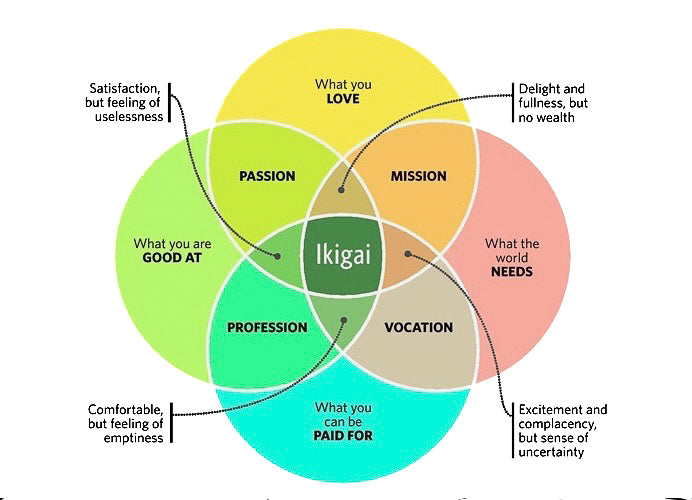
Ikigai
Ikigai is a concept rooted in Japanese culture that emphasizes finding joy and purpose in life through a harmonious blend of factors such as passion, vocation, mission, and profession. The interconnectedness of these elements forms the essence of one's ikigai, motivating individuals to wake up each day with a sense of fulfillment and drive. The word itself, deriving from "iki" meaning life and "gai" signifying worth or value, encapsulates the idea of living a meaningful and purposeful existence.
The historical background of ikigai dates back to the Heian period in Japan, where the concept of value was symbolized by the preciousness of shells, adding layers of significance to the term. Throughout history, the notion of ikigai has been associated with various contexts, such as the value of work (hatarakigai) and the satisfaction derived from meaningful pursuits (yarigai ~ga aru).
Central to the philosophy of ikigai is the concept of balance and alignment between four core elements represented in the ikigai diagram: what you love, what you are good at, what the world needs, and what you can be paid for. It is within the intersection of these components that individuals discover their unique purpose and sense of fulfillment, guiding them towards a life rich in meaning and satisfaction.
The significance of ikigai extends beyond individual fulfillment, with researchers exploring its potential impact on longevity and well-being. Studies have shown a correlation between having a strong sense of purpose, engaging in activities one is passionate about, and increased levels of DHEA, a hormone believed to play a role in longevity. Examples of individuals who have lived long and fulfilling lives attribute their vitality to daily engagement in hobbies they truly enjoy, highlighting the profound connection between passion, purpose, and health.
Ultimately, the philosophy of ikigai encourages individuals to live a life that is not only fulfilling and rewarding but also contributes to overall well-being and longevity. By aligning personal passions with societal needs and professional endeavors, individuals can unlock a sense of purpose that propels them towards a more meaningful and enriching existence.

